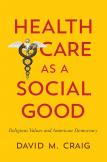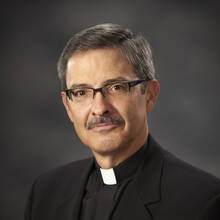A Sense of Solidarity
President Obama signed the Patient Protection and Affordable Care Act (A.C.A.) on March 23, 2010, and it’s been dogged by conservative attempts to reverse it ever since. The fundamental belief that motivates most, if not all, conservative opposition is unmistakable: Health care should be a privilege rather than a right. If you can’t afford health insurance on your own, that is not the government’s problem. While congressional Republicans shout in unison “Repeal Obamacare!” few have the confidence to make the case openly that the inability of some people to afford the cost of their own medical care is their own problem. Not to be outshined, the Supreme Court in early November announced it would hear another challenge to the A.C.A. Depending on how the judges come down, they could end up outlawing some of the federal tax subsidies that are helping people buy individual insurance policies. It’s hard to imagine a more appropriate time for this book to appear.
In David Craig’s own words, the crux of his book’s argument is a simple slogan: “Health care works only if everyone is in it together.” But this is not a simple book. It could not be, because the economic and policy intricacies of U.S. health care and the reform debate are mind-boggling. Yet Craig does a truly remarkable job with his detailed and comprehensible analysis of the competing moral languages of U.S. health care—as a private benefit/choice, as a public benefit, and as a social good. And he breaks new ground in arguing for the place of religious values in health policy, markets, and politics. In short, social discourse regarding health care reform, and religious values talk therein, identify the core of this important book.
The title of the book’s introduction is telling: “Hearing Health Care Values.” Rather than beginning with first principles of health care justice as many authors would do, Craig explores U.S. health care through stories of health policy. And what does he hear? Folks “are engaged in values-driven conversations about how to join their efforts in pursuit of good health care while seeking constructive compromise.” These conversations include religiously based languages and values. While conceding that religion and democracy often don’t mix well, Craig draws his line in the sand to claim a place for religious values talk and political activism in social discourse regarding health care reform. This move is never easy, yet Craig’s provocative and nuanced approach sets a new standard, while contributing impressively to the current health care reform debate.
Furthermore, this novel methodology of listening to health care stories enables Craig to defend the thesis “that Americans have helped build U.S. health care together through more than a half century of public policy, yet they do not recognize the extent to which they have bought in to one another’s care.” He identifies this shadow reality as his first step in developing “a moral basis for a progressive vision of health care as a social good.” Conservative market reformers generally see health care as a private good (embodying individual responsibility), while liberal rights advocates view it as a public good (embodying social responsibility). What is lacking in both views is a sense of social solidarity. Rather than argue from first principles to defend his notion of solidarity, Craig “discover[s] a record of social norms, public values, and a commitment to our shared humanity as Americans” and persuasively argues that this “testifies to a hidden solidarity implicit in U.S. health care.”
What are citizens concerned about the public good to do with this hidden solidarity? We are to summon it forth! For Craig, this will steer “health care reform toward the goal of affordable, quality care for all.” For those who care deeply about the current direction of health care reform, this is our challenge.
As the national debate about “Obamacare” intensifies, Craig defends the A.C.A. by asserting it provides “the policy foundation for a novel effort at social stewardship.” It does so by avoiding “both the public allocations of a single-payer system and the free play of individual preferences in market reform.” But the A.C.A. needs much help to succeed. What is lacking is a public narrative that provides necessary “moral stuffing” to assist in generating social solidarity. From where might this narrative come? I couldn’t agree more with Craig’s marching orders: “religious languages and community engagement are necessary to engender this...active solidarity for national health care reform that secular liberal and economic arguments have not produced.” I pray that religious leaders—Christian, Jewish and Muslim—heed his challenge and proclaim the good news of social solidarity in order to promote just health care reform.
This article also appeared in print, under the headline “A Sense of Solidarity,” in the March 2, 2015, issue.








